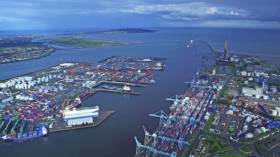Displaying items by tag: Debate on RFD
ESPO Drives Road Map to Cut Red Tape in Maritime Transport
#RedTapeRFD - Port authorities are one of the main stakeholders in the ongoing debate on implementation of the Reporting Formalities Directive (RFD).
The European Sea Port Organisation (ESPO) and its members have developed a roadmap defining some ambitious but realistic steps towards administrative simplification and trade facilitation.
ESPO believes that the recently launched REFIT evaluation of both the RFD and the VTMIS directives should be seen as the perfect opportunity to analyse the reasons why the RFD is not properly implemented and therefore does not achieve its aims. Making this analysis is clearly the first “to-do” of the roadmap.
Furthermore, ESPO identifies the following steps on the road to simplifying and streamlining reporting:
ESPO believes that a network of interconnected reporting systems sharing the same functional specifications would be the best solution at European level. This solution is the only way to ensure that electronic reporting is done through resilient and robust yet flexible systems that ensure the reliability of data.
Ships calling at EU ports should report the same data elements in each EU port in the same format (common data requirements) and only when justified by local circumstances, additional data.
ESPO calls the Commission to set up an industry expert working group to contribute achieving the above exercises.
To conclude, for European port authorities, accomplishing the internal market for maritime transport is a top priority. To realise this, the main focus should lay on administrative simplification and on removing customs obstacles to EU goods transported between EU ports.
Opening the ESPO Conference, ESPO Chairman Santiago Garcia-Mila said: “We believe that it is time to go beyond the “yes/no” discussion on a “European Maritime Single Window”, whatever it might mean. We believe that developing an ambitious but realistic roadmap, taking into account the realities of shipping and the existing EU and national legal requirements, will give the European ports and shipping industry a real window of opportunities!”
ESPO’s Secretary General, Isabelle Ryckbost says: “There is certainly room for simplification and achieving this is certainly on the wish list of European ports. But one cannot ignore that there will always be a need to report at port level to guarantee safe, secure and efficient operations. Moreover, for any system to work, it is crucial to work with reliable data that can be checked, if needed on their source. Finally, the resilience of any system should be seen as a top priority.”

























































